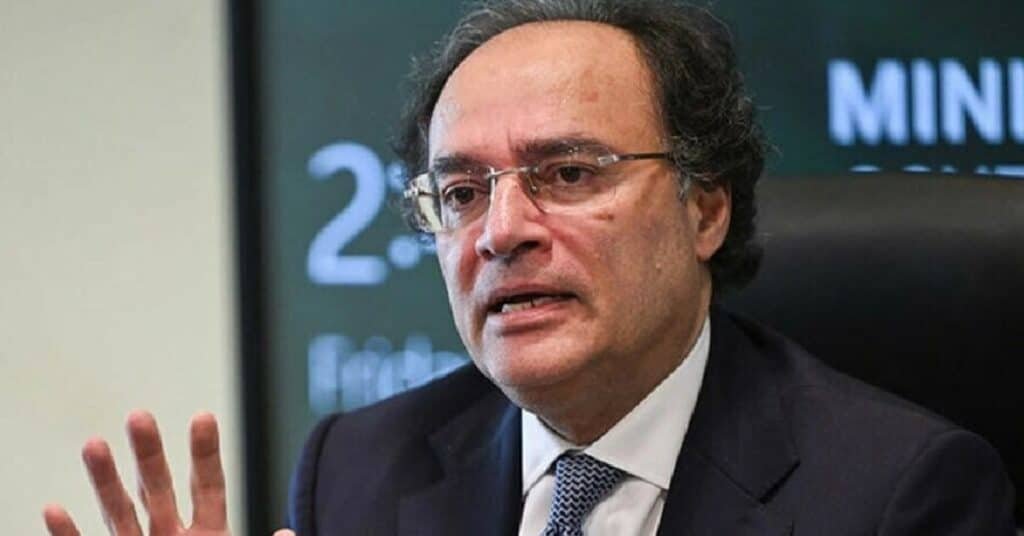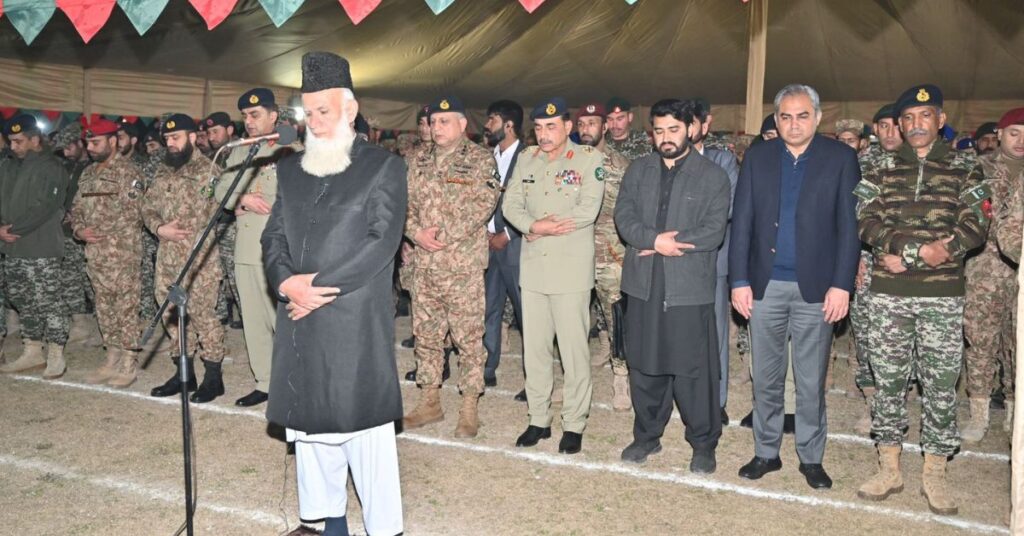ISLAMABAD (Kashmir English): Finance Minister Muhammad Aurangzeb is currently speaking at a post-budget press conference, explaining the government’s aims and important details for the 2025–26 fiscal year.
The briefing follows the federal budget’s presentation a day earlier, where Prime Minister Shehbaz Sharif’s administration unveiled a Rs17.57 trillion spending plan.
The budget sets a 4.2 per cent growth target and includes relief for salaried individuals, while overall government spending is to be cut by 7 per cent.
The press conference began after a brief walkout by journalists. Reporters protested not being given a technical briefing by the Federal Board of Revenue (FBR), which is usually part of the budget day tradition.
The government estimates a budget deficit of 3.9 per cent of GDP and expects inflation to ease to 7.5 per cent in the coming year.
A major focus of the new budget is tax collection. The target has been increased by 18 per cent to Rs14,131 billion, with the tax-to-GDP ratio expected to reach 10.1 per cent, a 1.6 per cent rise.
The defence budget is also set to rise by 20.2 per cent, reaching Rs2,550 billion.
For the salaried class, the government has suggested a new tax structure aimed at providing some relief.
Those earning up to Rs2.2 million a year would now pay a minimum tax rate of 4 per cent, down from the current 15 per cent.
People earning between Rs600,000 and Rs1.2 million annually would see their tax rate drop from 5 per cent to 2.5 per cent.
The finance minister also pointed to tougher actions planned against tax non-filers. Under the new measures, non-filers could be blocked from accessing the country’s financial system if the proposal is approved.
The goal is to expand the tax net and increase compliance.
He shared further details of the budget, focusing on tariff reforms and development plans. He said that tariffs have been reduced to zero on 4,000 out of the 7,000 total tariff lines.
“The tariff reforms have not been carried out for the last 30 years,” he said, underlining how important these changes are. He explained that these reforms are not only crucial for the country’s economic progress but are also expected to support export growth.
Talking about the rising cost of living, Aurangzeb mentioned that pensions and salaries must be adjusted in line with inflation.
He also noted that the federal government will work together with provincial governments to boost agriculture and livestock sectors.
He added that there should be a clear policy in place for agriculture and livestock, pointing out their importance for national development.
Finance Minister Muhammad Aurangzeb, during the ongoing budget briefing, highlighted the need for setting a clear standard when it comes to salaries and pensions.
“Whether it is the public or private sector, it must be aligned with some benchmark,” he said, adding that in most countries, adjustments in salaries and pensions are generally linked to inflation levels.
He mentioned that the inflation rate currently stands at 7.5 per cent and emphasised the importance of managing federal expenditures.
“This time, we have limited federal expenditures to 2 per cent,” he noted, underlining the government’s efforts to maintain financial discipline.
On the agricultural front, the finance minister assured that no new taxes had been placed on the sector in the new budget.
He announced that small-scale farmers would be able to access loans on easy terms and reiterated the government’s intent to provide support where possible.
“We can only provide relief following our financial capacity,” he added.
Aurangzeb acknowledged the long-standing issue of rising national debt. “In the past, our debts continued to increase,” he said.
Speaking on the current financial situation, he admitted, “Our budget starts with a deficit,” and explained that certain increases in spending were necessary.
“We have to move forward according to our means.”
Discussing how the government is financing its commitments, he stated, “Whatever the government is providing, it is doing so by taking loans.”
He also defended the recent pay raises for top parliamentary positions. “Look at when the salaries of ministers, ministers of state, and parliamentarians were last increased. The last increase in the salaries of cabinet ministers was in 2016,” he said, justifying the decision.




